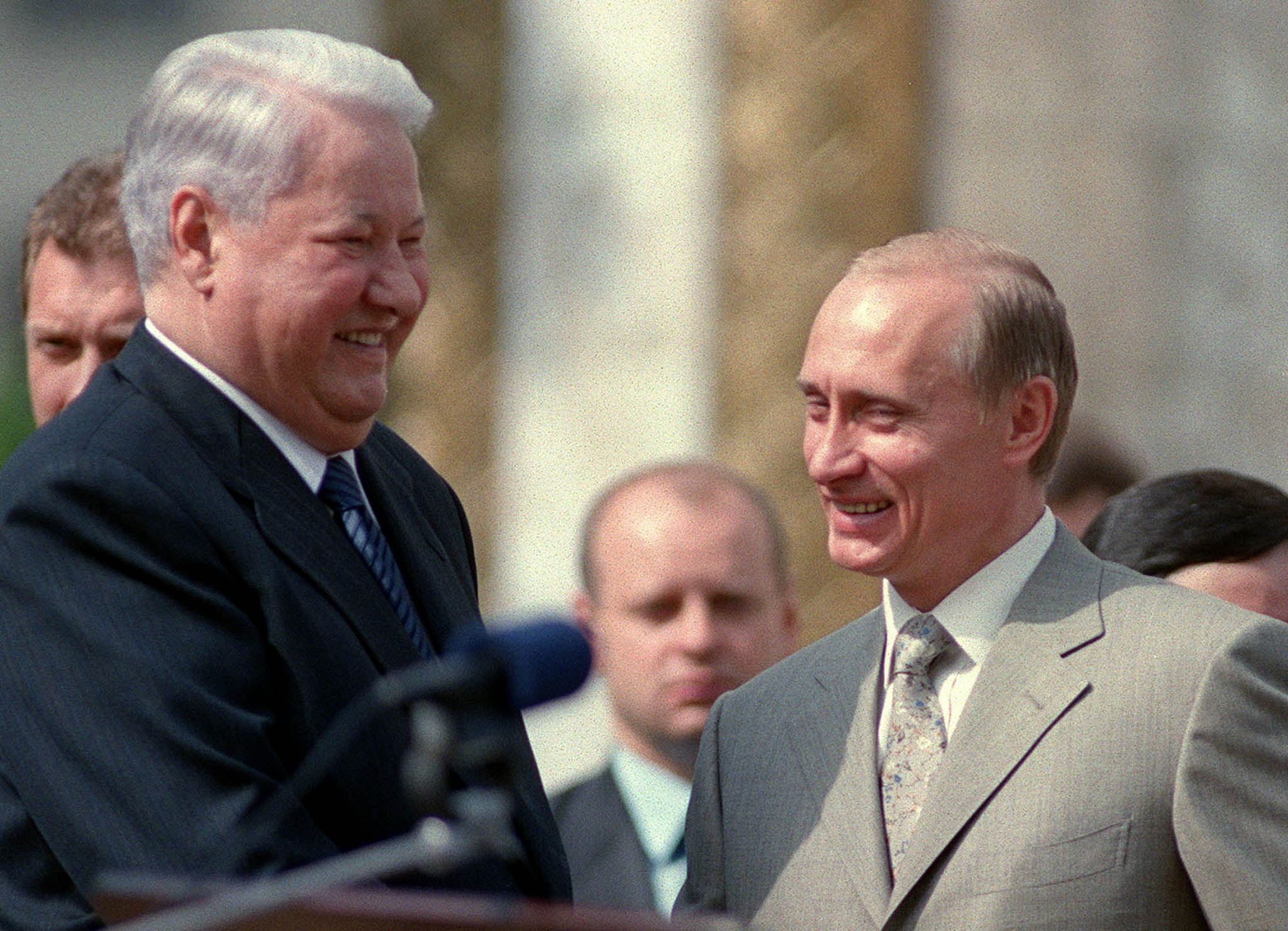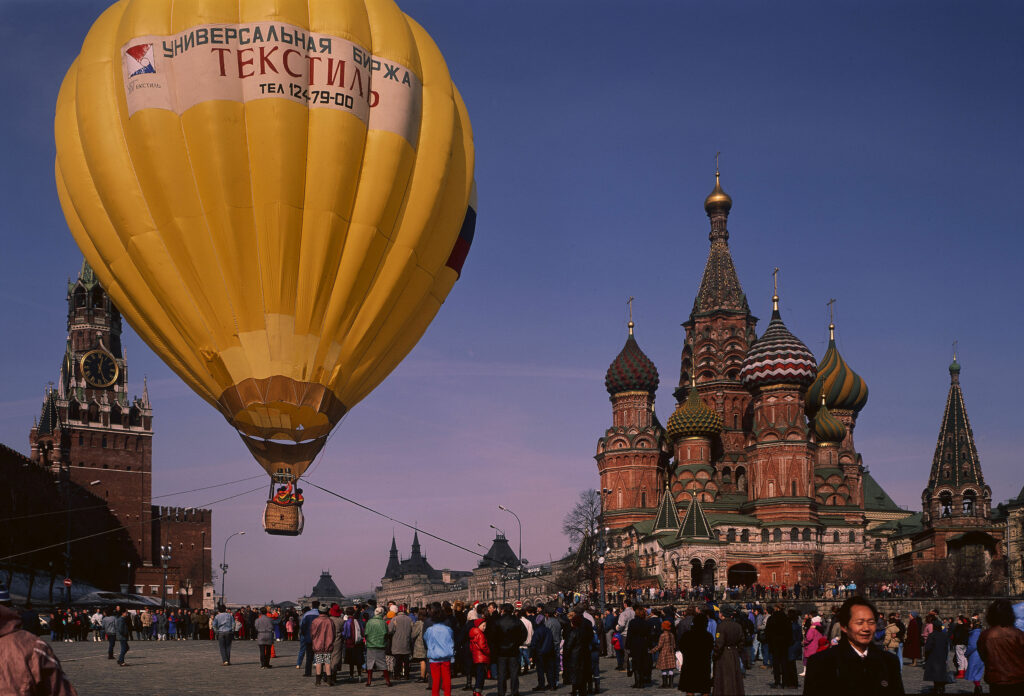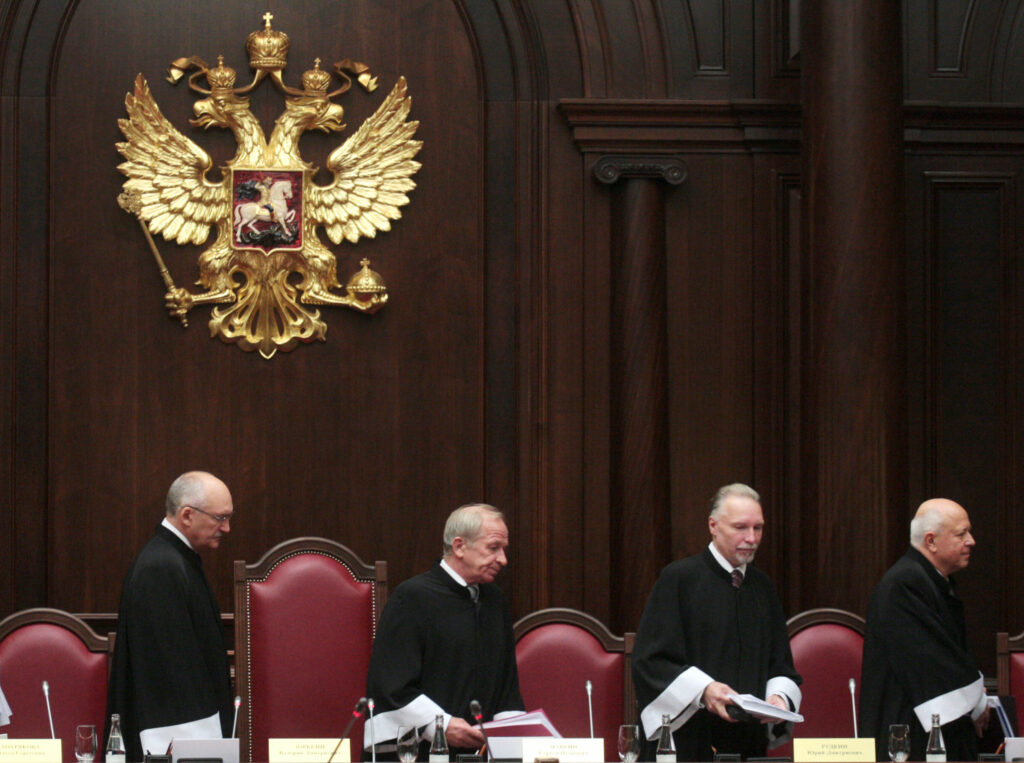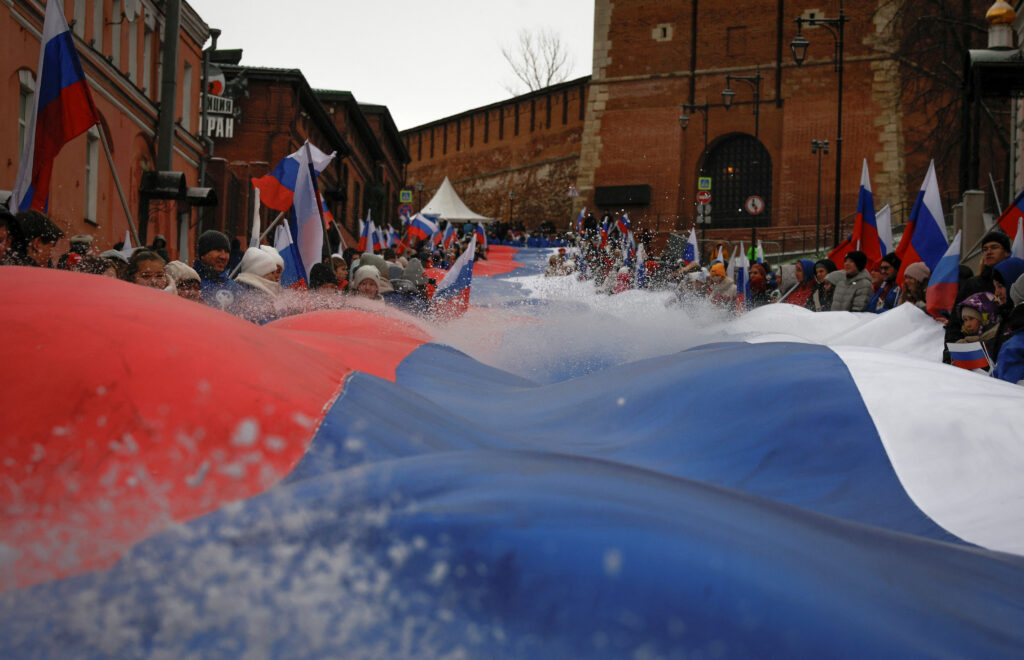The Navalny organization recently released a new video which fired up fresh debate about how democratic reforms in the 1990s were derailed and how Russia ultimately fell back into authoritarianism. This is not a new topic, especially among the Russian diaspora; over just the past year, I have personally participated in two academic events that looked at this directly. What is most striking about these events, to those who study the 1990s closely, is the pessimistic lament that even in the 1990s, Russia didn’t have a real democracy. Indeed, as a respected Russian political scientist teaching in the US once told me: «We [Russians] just aren’t good at compromise.»
The evidence does not back such a defeatist view of Russian democracy (or the inevitability of Putin’s rise). The popular consensus since the 1990s had been that democracy failed in Russia despite Yeltsin’s best efforts. A deeper look, however, increasingly shows that democracy failed in Russia because of Yeltsin’s efforts, not in spite of them.
The Democracy Russia Gained
Between 1990 and 1993, Russia rapidly developed the institutional infrastructure of a functional federal democracy. While still in its early days, this infrastructure was indeed sufficient to create a semblance of functional constitutional government, and could have ushered in a successful democratic transition. In three years Russia went from a Soviet autocracy to a federal democracy with a popularly elected parliament, a popularly elected president, a constitutional court and a new federal treaty with a new constitution in development. New constitution massively expanded citizens’ civil rights while also creating checks and balances and a separation of power. This took close to 300 amendments to the constitution and intensive work, dedication, and … compromise. The fault lay not in the political culture or a established class as some have argued — but in the choices made by a few individuals who first benefited from reform, then sought to undermine democracy to solidify their own power. First and foremost among these was Boris Yeltsin. He was the first popularly elected Russian President whom Brent Scowcroft US NSA observed was «Fundamentally after power.» Douglass Hurd, who was serving as UK foreign secretary at the time, similarly referred to Yeltsin as a ‘dictator in waiting.’
Despite these prominent detractions, Yeltsin secured almost unwavering support in the West. Western leaders had hoped Yeltsin would build democracy and a free market in Russia. Instead, he drove ahead with the free market even as he moved to dismantle nascent democracy and implement his preferred constitution. The justification, as vocalized by Yeltsin’s Foreign Minister Andrey Kozyrev and echoed by his Western counterparts, was to secure «economic reform in Russia [as a] guarantee of irreversibility of its democratic reform process.» Yet after Yeltsin left office, his successor was able to gradually at first, then in rapid succession, consolidate his grip on power, where he remains ensconced to this day. Far from preventing the rise of Russian revanchist nationalism, Yeltsin paved the way for it.
So was this all inevitable? It certainly was not. Russia left the USSR in December 1991 upon the urging of its President Boris Yeltsin. Yeltsin had only been elected President in June of 1991 after creating the office of President in March of that year. Prior to that, he had been an elected deputy of the Gorbachevian legislature the Congress of Peoples Deputies of the Russian Soviet Federative Socialist Republic. This legislature of 1068 deputies had been elected in March of 1990 as part of Gorbachev’s ultimately fruitless efforts to reform the USSR.
The RSFSR Congress, like its fellow legislatures in Ukraine and Belarus, did not have reserved positions for the communist party and electoral interference had been minimal. Moreover, the election rules were fairly straightforward: any number of candidates could compete; if no one achieved 51% of the vote there was a run off. Records from the Russian State Archives show that in the hustings, an average of 6.3 candidates competed for each seat. Only 33 districts had a single candidate; over 300 had more than 4; and 24 districts saw races between 20 or more candidates.
How Democracy died in Russia
The Congress was plagued by organizational challenges; the CPD was meant to be a lower chamber to elect a standing Supreme Soviet of 245 members and a chairman who would in effect be prime minister and speaker. There was no way to organize party discipline or wield the whip. Votes were chaotic and haphazard. There also was an openly imperialist and at times openly antisemitic element. Yet they never dominated the chamber. When Alexander Rutskoi, who served as Yeltsin’s vice-President, called for intervention in Moldova, one deputy asked if he would next ask Russia to defend Russian speakers in New York.
The Congress would pass some questionable laws, especially in relation to Crimea; but it must be said none of these actively advocated violence. For the length of its existence the parliament performed its designated function more or less in a democratic fashion. It was a functional legislature, transparent in its public business and conforming to the wishes of its constituents. Many of the detractors of the Congress point to its heavily flawed constitution as evidence of its unsuitability. This neglects how one of the first Congressional acts in 1990 was to create an expert commission to replace the 1978 RSFSR constitution with a new document. The head of this commission was of course Boris Yeltsin — who in 1990, against Gorbachev’s urging, he was elected chair of the Russian Supreme Soviet; Yeltsin led the Congress to break away and to declare the sovereignty of Russia. In 1991 it created the office of Russian President and Vice President, and a constitutional court. Despite at times caustic debate, the Supreme Soviet ratified the dissolution of the USSR with only 4 deputies voting against it. Throughout, work continued on the constitution but in a slow pace as Yeltsin hindered finalising reform far more often than he helped it. Yet despite his obstruction, the outlines of a federal system began to emerge.
Did this mean the Congress was an ideal democratic body? No; far from it. Privilege seeking and corruption were rampant (made worse by how deputies weren’t paid unless they served in the Supreme Soviet or on committees). Ruslan Khasbulatov, the russified Chechen economics professor who began as Yeltsin’s deputy and became his arch-rival, was indicative of this. Despite being eloquent and insightful on the crucial matters of separation of powers and rule of law, he was also personally ambitious and grasping. After the end of the USSR Khasbulatov’s first act was to seize Leonid Brezhnev’s old apartment for himself. This coincided with his fondness of limousines and increasingly grand offices. His behaviour — and the amalgamation of opposition forces — left many deputies, members of the local and international press, and foreign diplomats with a bad impression of the Congress overall. Badly managed, it was too large to be an effective legislature, yet Yeltsin dithered on new elections, electoral laws and enacting the constitution, despite all this being easily achievable in fall of 1991. He instead secured emergency powers for himself to address the economy. The results of this was Gaidar’s harsh economic reforms — which resulted in a broad coalition of deputies turning against Yeltsin.
In the backdrop, the Russian Constitutional Court began to assert itself. Rutskoy, Khasbultov and Yeltsin clashed openly on a number of issues. The Court stepped in to try to serve its purpose as arbitrator, but also guarantor of the rule of law. In one case it ruled against Yeltsin’s efforts to to merge the security and interior ministries. When told the news, Yeltsin was stunned the court had gone against him, and it took Valery Zorkin, the Chief Justice, an hour to persuade him to comply. Which ultimately Yeltsin did. The Court also sided against Khasbultov in his efforts to renationalize the Izvestia newspaper, which he felt was covering him unfairly. Khasbultov complied with the ruling.
Despite these successes the Constitutional Court made several missteps. While trying to be apolitical, it agreed to hear the case on the Communist Party which was seeking to overturn the ban placed on it and recover seized assets. It also ruled against Tatarstan’s independence referendum, which went ahead regardless. Ultimately, the Court in serving its function as an arbiter gained enemies on both sides, and very little recognition for its critical role in actually trying to uphold rule of law. Instead, the political debate tarnished its reputation and its existence was brief; it lasted only a year. So its contribution is now forgotten. But one must pause to consider that for a year a Russian Court ordered the highest ranking members of Russia’s government to stop their actions solely on the grounds those actions had violated the constitution.
The confrontation between Yeltsin and his opponents came to a head at the 7th Congress of Peoples Deputies in December 1992. In that Congress the deputies pushed Yeltsin to formally name a Prime Minister as he was obligated to do, since June Yeltsin had filled the role of President and Prime Minister, as well as Defence Minister. The Congress also rejected Gaidar, Yeltsin’s first choice, and the man most blamed for wrecking the economy. The result was unprecedented: a compromise. As Dimitri Simes wrote at the time in Foreign Policy. «Something more important than a clash of personalities or a choice between different models of economic development was at stake during the Congress. The crucial issues were institutional and legal: Could the Russian political class accept such concepts as a separation of power, acting within the law, finding compromises with opponents, or, above all, learning to run the country in a democratic rather than an arbitrary fashion? By those criteria, the dramatic December session of the Congress made a contribution to Russian democracy.» Viktor Chernomyrdin a former red director and an industrialist became Prime Minister and it seemed that an agreement on a path forward had been agreed, there would be a new Constitution adopted by referendum in the spring and new elections to be held after that. At this point one would think there was a path forward for Russian democracy, and one would be quite wrong.
In March of 1993, two weeks before the 8th Congress of Peoples Deputies, Yeltsin told German Chancellor Helmut Kohl that the Congress was «very reactionary and wanted to throttle the reform process. Basically, one was confronted with neo-fascists.» To the Chancellor’s question about the strength of the opponents, Yeltsin replied that his opposition was from «former CPSU, which was about to reorganize itself — this was a danger that one must not underestimate.» This omits that Yeltsin himself had been a CPSU man only to resign in 1991 followed by many other Russian Deputies. Nonetheless, Yeltsin constructed a narrative that his opposition was not driven by policy but revanchist ideology. Granted, the mishmash of opposition groups had some unsavoury, openly anti-sematic quasi-imperialist elements. Still, these elements never comprised a majority of the legislature or wielded substantial influence. They were a loud, and deeply divided — far from the cohesive cabal Yeltsin described to Kohl and later Clinton. Yet their antics were enough to create a feeling of insecurity, which bolstered an unwavering Western support for Yeltsin, and secured substantial domestic support especially among the urban classes and intelligentsia.
Though this was far from universal. As Otto Latsis wrote in 1993: «No matter how bad the current parliament is, removing it from power by any means remains extremely undesirable and potentially dangerous for the fate of democracy.» Maria Sorokina, the Deputy for Lipetsk, went further in the 9th Congress: «Boris Nikolaevich, you betrayed not only us who believed in you, who believed in democracy, who longed for change. Unfortunately, you have „surrendered“ democracy.» She called for his impeachment. Prior to that, Yeltsin had announced a special regime on television but failed to follow through. Ultimately he survived impeachment over the affair and the Congress agreed to the infamous April referendum. The referendum was notable for many reasons, not least because it showcased Russia’s first election jingle encouraging voters to vote yes, yes, no, yes on the four questions. After the Da, da, nyet, da vote, Yeltsin used the referendum to order the abolition of the Congress and the Constitutional Court.
There was resistance and the April referendum legality is questionable, but as Political Scientist Vladimir Gelman aptly noted: «Congress had the law, Yeltsin the legitimacy.» The resulting standoff saw the Congress impeach Yeltsin, but he ignored it; he ignored the court siding with the Congress and he left the door open for deputies to defect, which many did because they saw where the wind was blowing. The by now unpopular Congress rapidly turned to its militant fringe and their supporters, who were not necessarily pro-constitution but very anti-Yeltsin. The result was the military, after some reluctance, was on Yeltsin’s side. Though Yeltsin was commander-in-chief at this point, as of September 21 he had been removed from office as the parliament had impeached him and the constitutional court had upheld this. Rutskoi was appointed acting president by the parliament, a move upheld by the Constitutional Court, yet one which Yeltsin ignored.
Rutskoi’s crucial mistake was to immediately order Defense Minister Pavel Grachev’s dismissal thus incentivising the crafty paratrooper to wait until Rutskoi overstepped. A hodgepodge militia had turned out to defend the parliament. This militia was composed of some of the most militant and extreme elements active at the time that was united in its hatred of Yeltsin rather than support of the Constitution. After a 14 day standoff they tried to stage a insurrection and the out of his depth Rutskoi went along with it. It failed and provided a pretext for the military to intervene. Grachev still demanded an order in writing from Yeltsin, weary of being made a scape goat. He got his signed order and the confrontation ended with the House of the Soviets, where the parliament was headquartered, under tank fire. The Congress surrendered after 147 lives were lost, none of them members of the parliament or government. None of the parliament or their supporters faced long term consequences as the new Duma, in a rare act of defiance to Yeltsin, issued a blanket amnesty. Khasbulatov even got to keep his apartment.
Conclusion
The new Constitutional Referendum and elections held in December of 1993 put in place a regime dominated by the President which remains in force to this day. Valery Zorkin, after a period in exile, even returned to the new impotent Constitutional Court, where he set his mind to more esoteric issues. The Duma — with rare occasions — became more compliant as time went on and the formal political power structure was rearranged. The initial elevation of the LDPR in 1993, driven as a protest vote, diminished in subsequent elections; but after 1996 the would be opposition chose vassalage to the ruling power over confrontation. Oleg Rumyantsev, the deputy chair of the constitutional commission who had stayed in the building all through the siege, asked of 1993: «What kind of election is it when parliament is burning.»
Russia had seen a functional democracy for a year, with a path towards a strengthening of institutions that would outlast the politicians that dominated its government in the 1990s. Yet Yeltsin, ever the party boss and never the visionary, instead provided a template that allowed his successor to first consolidate power, and then become unrestrained in his impulses. Driven by his greed and the greed of those around him for status and power he used corruption and clan politics to consolidate power.
The Navalny organization points to the individuals who grew rich from the system put in place in the 1990s, but it neglects that briefly alternatives existed, at least until after 1993. After Yeltsin had crushed his detractors, systemic corruption and patronage once more became embedded into the fabric of Russian political life. When Putin inevitably dies, the Russian people cannot dismiss the possibility that democracy might once more take root. Yet the corruption that Yeltsin helped to implant must be excised root and stem, and new democratic institutions erected. It is not widely acknowledged that for a brief time Russia experienced functional rule of law and democratic institutions. These were smothered by Yeltsin before they could grow strong, yet someday they might rise again and grow strong enough to survive the selfish machinations of the men who are supposed to lead Russia.










